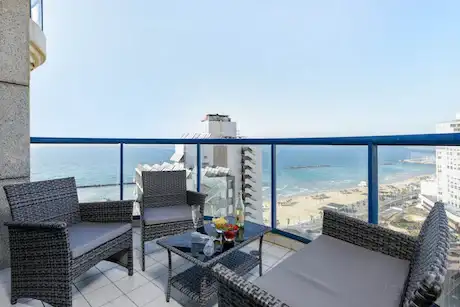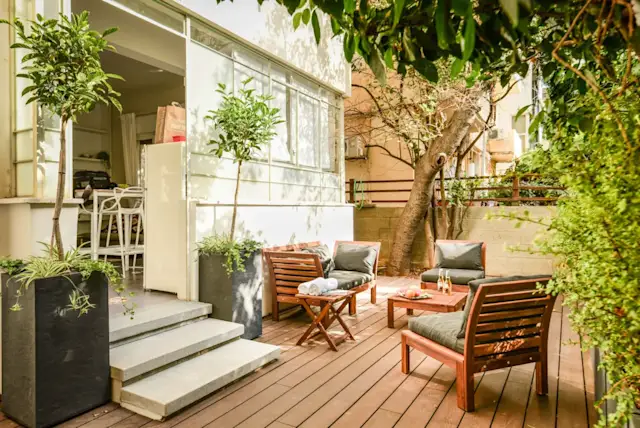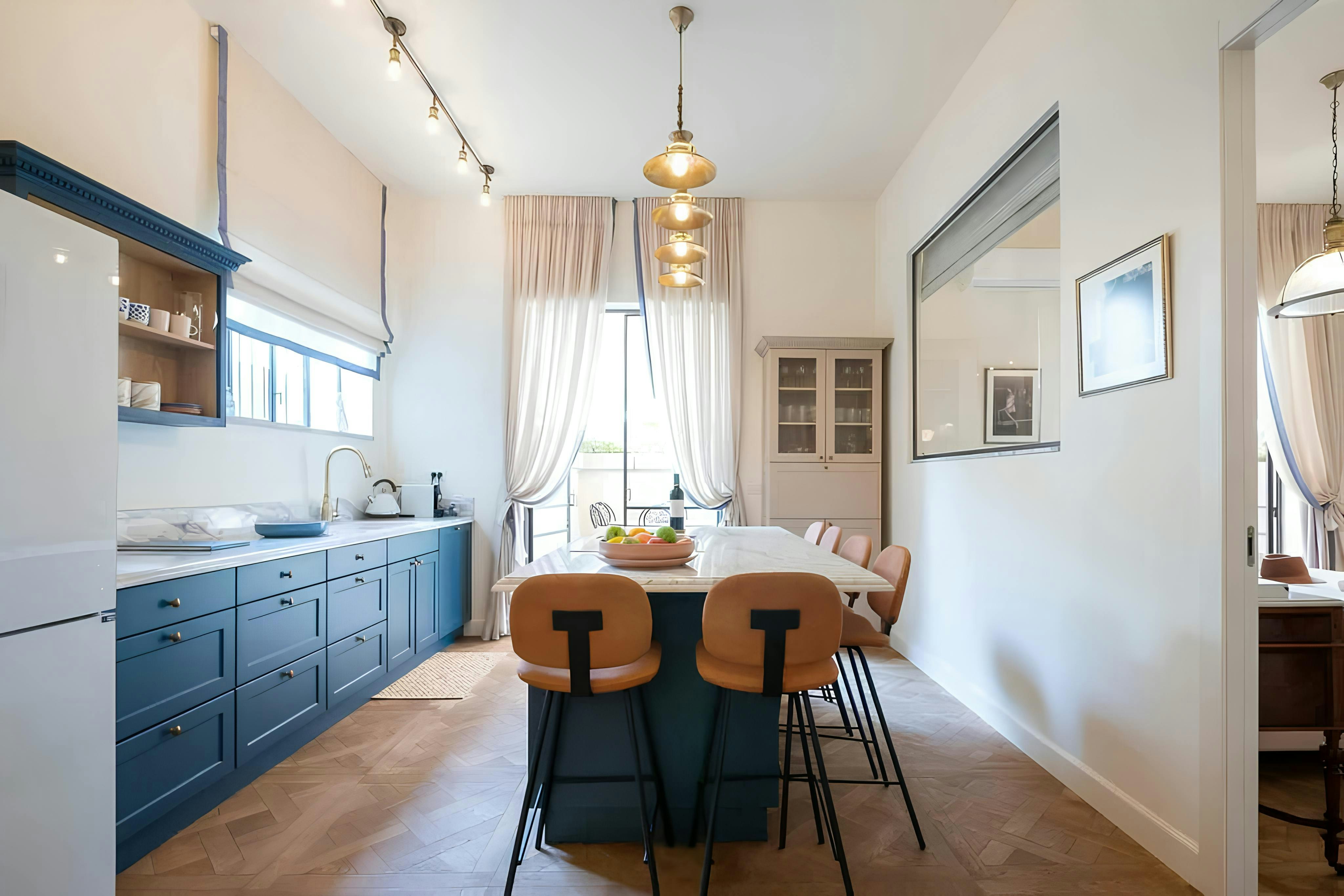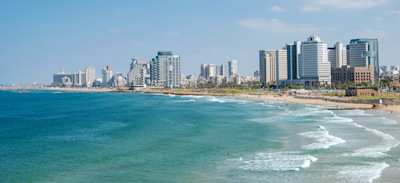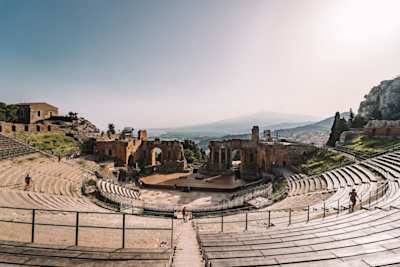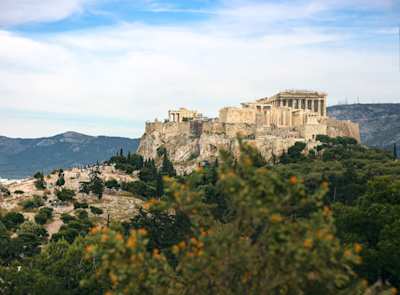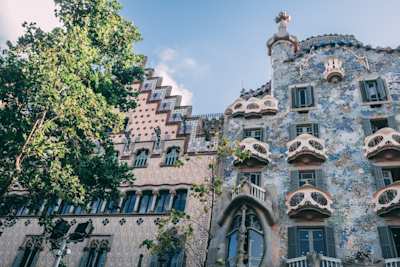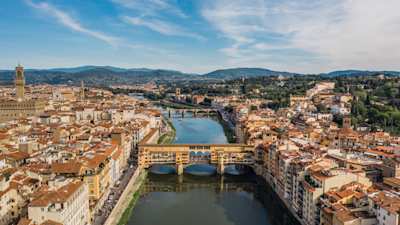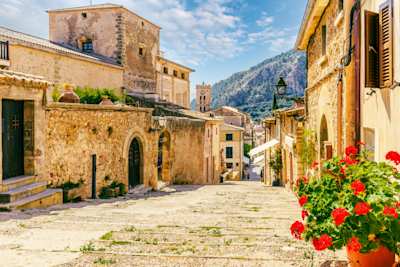The Best Tel Aviv Travel Guide
Continuing to fly under the radar for many, this alternative Mediterranean holiday destination never fails to delight
~
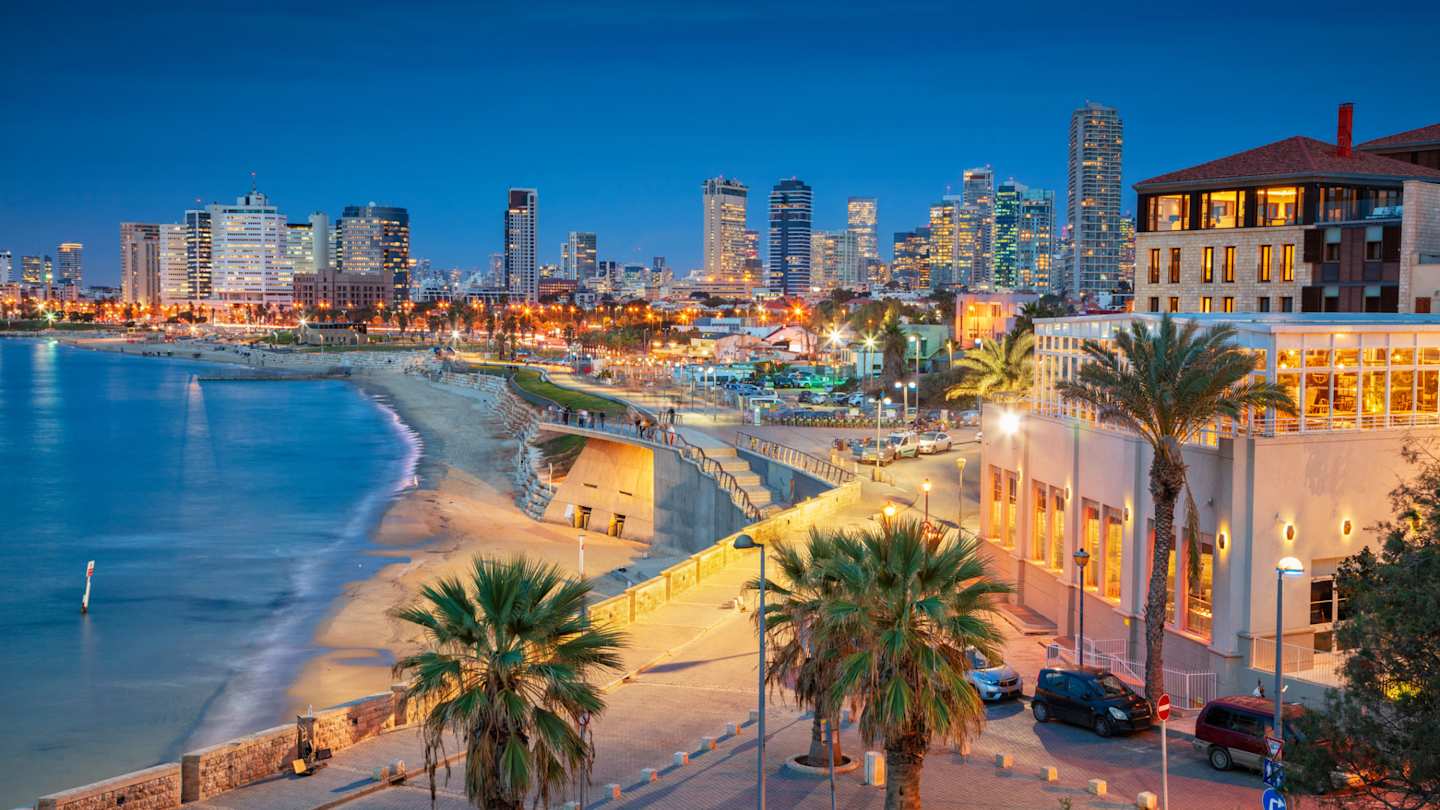
Founded in 1909, the relative youth of modern-day Tel Aviv is reflected in its position as a major hub of business and finance. However, you’ll find most people are visiting to get away from work, and we can’t blame them. The city is well known for miles of sandy Mediterranean beaches, beautiful parklands and a perfect Mediterranean climate. With its rich culinary scene, vibrant nightlife and diverse range of attractions, it’s a great holiday destination that’s often underrated. Here at Plum Guide, we (the travel experts) are giving you everything you need to plan the perfect trip to this intriguing Israeli hotspot. From when to go to what to do and where to eat, read on for your essential Tel Aviv travel guide.
General info about Tel Aviv
With a population of over 450,000 people, Tel Aviv is the second-largest city in Israel. Located on the Mediterranean coast (about 60 miles northwest of Jerusalem), Tel Aviv is known for its vibrant nightlife and cultural scene, as well as its many beaches and historical sites. It is also a major financial and technology hub, with a thriving and somewhat renowned startup ecosystem. Popular attractions include the Old City of Jaffa, the Bauhaus-style White City, and the Tel Aviv Museum of Art.
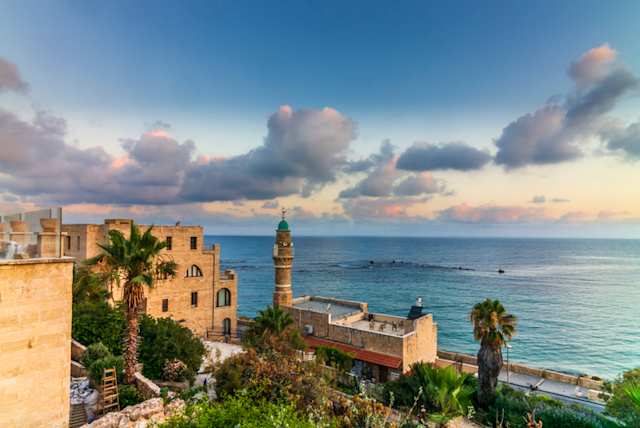
View of the Sea Mosque in the old town of Jaffa, Tel Aviv, Israel
Best time to visit Tel Aviv
The best time to visit Tel Aviv really depends on what it is that you’re looking for. If you’re looking to enjoy the beach and the city's outdoor attractions, the best time to visit is during the spring or fall, when the weather is mild and comfortable. The summer months can be very hot and humid, while the winter can be cool and rainy. Meanwhile, if you’re interested in experiencing Tel Aviv’s vibrant nightlife and cultural events, the city is lively year-round, so any time should work.
How to get to Tel Aviv
The most common way to get to Tel Aviv would be by air, landing at Ben Gurion International Airport—the main gateway to the city, located about 15 miles southeast of the city centre. If you’re coming from elsewhere within Israel, the city is very well connected by buses, trains and taxis.
Top activities and attractions
Beaches
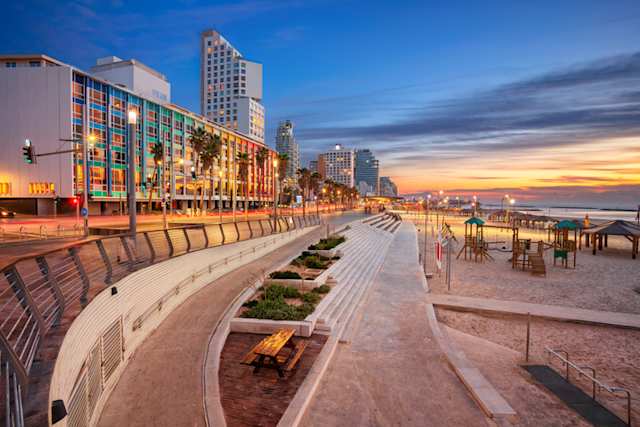
Tel Aviv beach at sunset
One of the main reasons for visiting Tel Aviv is the many beautiful beaches. Located on the Mediterranean coast, there are plenty to choose from. One of the most popular is Gordon Beach, located right in the centre and perfect for swimming, sunbathing and sports. Meanwhile, just north of Gordon is Frishman Beach, a lively spot with plenty of cafes and restaurants nearby. If you fancy a sunset, check out Jaffa beach in the old port city of Jaffa—it’s rather charming and laid back.
Historical sites
For all the beaches Tel Aviv has, there are an equal number of historical sites. For example, the old port city of Jaffa is one of the oldest ports in the world, with a history dating back over 4,000 years. Aside from the beach, it’s well worth wandering around to explore the flea market or the famous Jaffa Clock Tower. The Independence Hall, where the State of Israel was declared in 1948 (it’s now a museum that documents the history of the country’s founding). Head just outside the city, and you’ll find Masada National Park, an ancient fortification where Herod the Great built himself two palaces.
Art and culture
A pleasant surprise is the rich art and culture on offer here. No Tel Aviv travel guide would be complete without mentioning the White City. A UNESCO World Heritage Site, this part of Tel Aviv is home to a collection of over 4,000 Bauhaus-style buildings, proving a very popular sport for architecture enthusiasts. Meanwhile, the Tel Aviv Museum of Art is one of the most important cultural institutions in Israel, home to plenty of modern and contemporary art, as well as interesting exhibitions throughout the year.
Outdoor activities
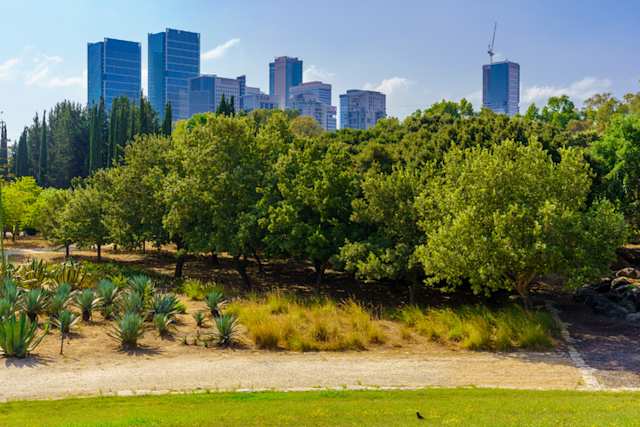
View of Yarkon Park, Tel-Aviv, Israel
For outdoorsy folk and nature lovers, there are many hiking opportunities in and around the city, thanks to nearby hills and nature reserves. Some popular hiking destinations near Tel Aviv include Yarkon Park and Ayalon Park, both of which offer a range of trails for hikers of all abilities. You can also navigate the city easily on a bike, or try your hand at water sports on the beach.
Natural wonders
All within easy reach from Tel Aviv, there are plenty of natural wonders to see, including famous Israeli landmarks such as the Dead Sea and the Sea of Galilee. Meanwhile, the Hula Valley Nature Reserve is known for its rich birdlife (over 500 species) and scenic hiking trails. On the shores of the Dead Sea itself, Ein Gedi Nature Reserve boasts beautiful waterfalls, hiking trails, and unique flora and fauna. In the Negev Desert, you’ll find Ramon crater, the largest crater in Israel, well known for its unique geology and stunning desert landscapes.
Hidden gems
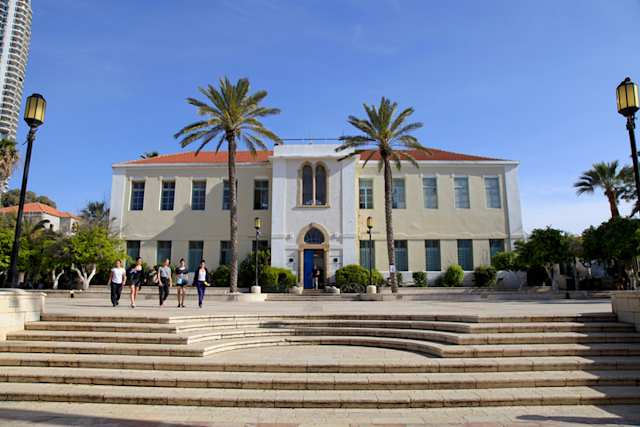
Suzanne Dellal Centre for Dance and Theatre in Neve Tzedek, Tel Aviv, Israel
Unsurprisingly, the city has plenty of hidden gems to uncover. For example, the Neve Tzedek neighbourhood is one of the oldest in the city and home to charming cobblestone streets, historic buildings and beautiful architecture. Within the neighbourhood, you’ll also find the Suzanne Dellal Center for Dance and Theater, a hidden gem for fans of the arts. It is home to the Batsheva Dance Company, one of the leading contemporary dance companies in the world, and offers a range of performances, workshops and events throughout the year.
Best areas to visit and stay in
Old Jaffa
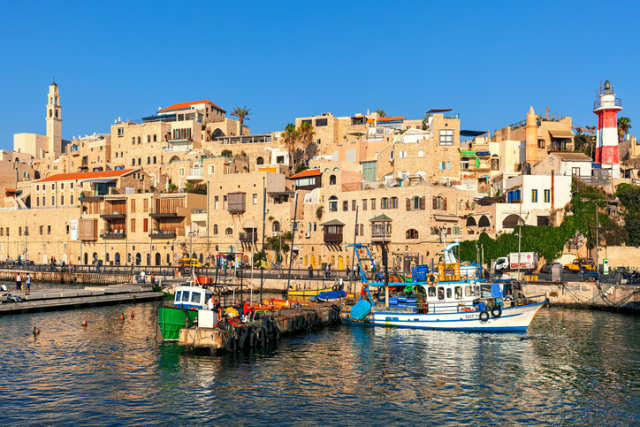
Fishing boats and port in Old Jaffa, Tel Aviv
Sometimes known as Yafo, Old Jaffa has a history dating back over 4,000 years. It’s well known for its quaint cobblestone streets, picturesque beaches and rich history. You’ll find plenty to do here, including historical sites and museums, as well as a vibrant art scene and restaurants, cafes and bars aplenty. It’s a great neighbourhood to base yourself in while visiting Tel Aviv.
Old North
Located in the north of the city (no prizes for guessing that one), this neighbourhood has an old-world charm about it, with plenty of ancient streets and historic buildings. Here, you can find the Tel Aviv Museum of Art, the Shenkin Street shopping district and the Independence Hall, as mentioned above. There are also a number of parks and green spaces, including Independence Park and Yarkon Park, making it a great location for nature lovers and those seeking a little greenery.
Florentin
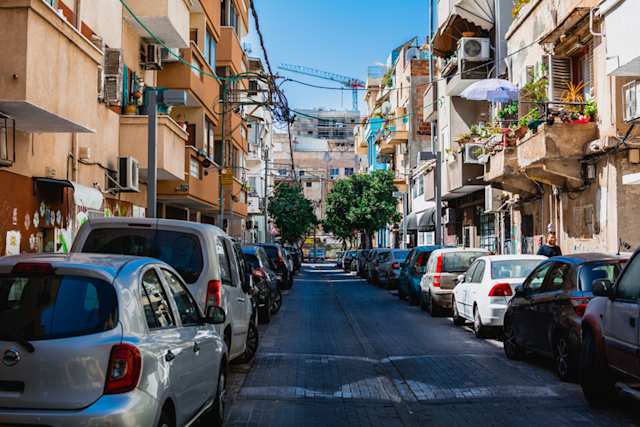
Street in neighbourhood of Florentin, Tel Aviv
If you’re looking for a taste of Tel Aviv’s vibrant culture and arts scene, Florentin is the place to be. Located south of the city centre, this unique and interesting neighbourhood has a bohemian atmosphere with a number of galleries and studios, as well as independent shops. As you stroll around, you’ll find all kinds of street art and graffiti as well as the Hatachana, an old train station that’s been converted into a shopping and dining destination.
Nachalat Binyamin
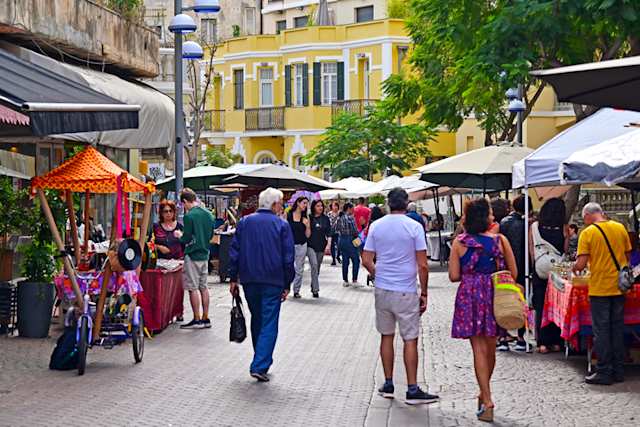
People shopping at Nachalat Binyamin Art Fair Market in Tel Aviv, Israel
Just east of the city centre is Nachalat Binyamin, another neighbourhood well known for its vibrant arts scene and lively atmosphere. Every Tuesday and Friday, the pedestrian mall hosts a very popular outdoor crafts market with a great range of handmade goods and artwork on offer (perfect for a souvenir or two). As the locals will proudly tell you, it’s the largest and oldest in Israel. The neighbourhood is also known for its diverse culinary scene, with a number of local and international cuisine options, including Israeli, Middle Eastern, Italian, Japanese and Indian.
Ajami
Set in a beautiful, peaceful seaside location just south of the city centre, Ajami is well known for its diversity, home to a mix of Jewish, Christian and Muslim residents. Considered an up-and-coming part of town, you can enjoy the beauty of Tzuk Beach on the Mediterranean and check out the picturesque Ajami Mosque, or St. Peter Church. The area’s restaurants are particularly well known for their hummus if that’s your thing.
Kerem Hateimanim
Located just south of the city centre, Kerem Hateimanim is known for its vibrant cultural scene and colourful architecture, with a number of galleries, artist studios and independent shops. The neighbourhood is also home to a number of historic sites, including the Great Synagogue and the Yemenite Quarter, where visitors can learn about the history of the city’s Yemenite community. Naturally, there’s also some fantastic, delicious Yemenite cuisine to be found here too. The winding alleys are home to old-school restaurants specialising in malawah flatbreads and hearty meat dumpling soups, as well as numerous hummus and falafel eateries.
Eating out in Tel Aviv
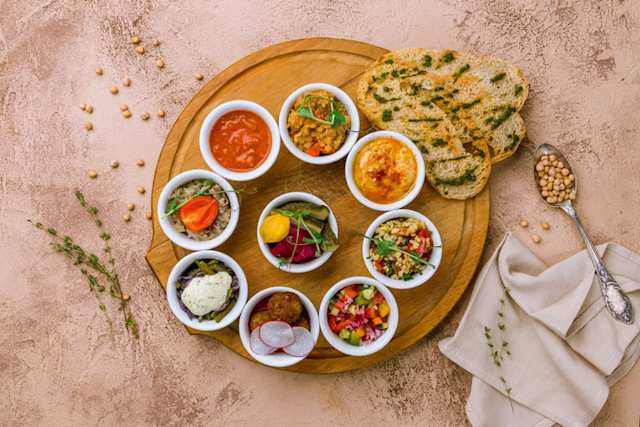
Israeli breakfast platter
If you’re a foodie, you’re in luck. As any Tel Aviv travel guide worth its salt would tell you, the city is renowned for its diverse, vibrant culinary scene. There’s a wide array of fresh seafood, Middle Eastern and Mediterranean-inspired dishes to pick from, as well as a rich, proud street food culture. The city is also home to a thriving vegan and vegetarian food scene, with many restaurants offering plant-based versions of traditional Israeli dishes.
Local delicacies
You’ll find many local delicacies within Tel Aviv, but some of the most popular (and known worldwide) include hummus, falafel, shakshuka and shawarma. Hummus is a popular dip made from mashed chickpeas, tahini, garlic and lemon juice. Good for dipping in that hummus is falafel, a deep-fried ball or patty made from ground chickpeas or fava beans, often served in pita bread with vegetables and sauces. For breakfast, shakshuka is a dish of eggs poached in a sauce of tomatoes, chilli peppers and onions, often served with bread for dipping. Meanwhile, the beloved shawarma is a sandwich or wrap filled with meat that has been cooked on a spit and then shaved off.
Where to find food
Tel Aviv hosts many bustling food markets where you can go and try a variety of local specialities like the ones mentioned above, and pick up fresh produce such as seafood, vegetables and fruit. If you’re eating out, you’re really spoiled for choice. Whether you’re on the hunt for local cuisine or something international, there are thousands of fantastic restaurants, cafes, bistros and bars that cater to all needs. It’s one of those cities where it’s hard to find a bad meal.
